Policymaking for IMPACT

Community engagement is not an afterthought or a box to check.
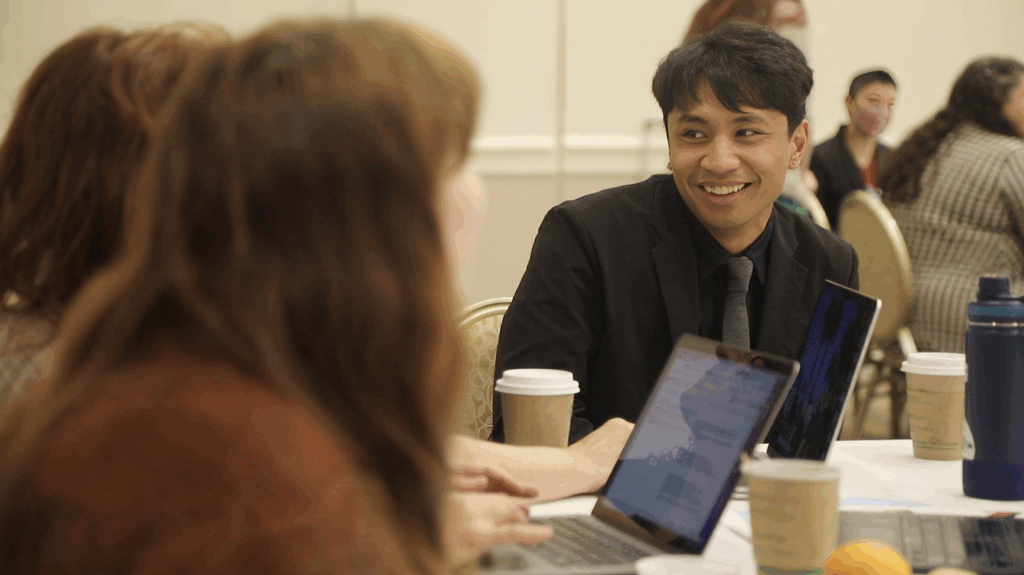


The six-step IMPACT framework (Initiate, Mobilize, Plan, Act, Catalyze, and Test) is designed to systematically guide this work, ensuring that crucial questions and considerations are addressed from the outset. Government leaders initiate the process by clarifying goals, timelines, and constraints. Community partners are then mobilized, engaging the local experts, organizations, and leaders who can bring varied perspectives to the table.
Together, this collaborative planning team matches the method to the mission: whether through a civic assembly, digital polling, deliberative design process, or some other structure for engagement. The plan is then put into action. Learnings from the engagement are synthesized and catalyzed into concrete, actionable recommendations. Finally, solutions are tested, iterated upon, and tested again.
This model has already been used to advance meaningful engagement for policy impact in California. From September 2024 to March 2025, for example, the UC Berkeley Possibility Lab brought the IMPACT Model to a partnership with the State of California’s Strategic Growth Council (SGC) and the Governor’s Office of Land Use and Climate Innovation (LCI). In seeking to carry out civic engagement, SGC and LCI wanted to find ways to improve cooperation among California’s land use and environmental leaders at various levels of government, as well as with tribal authorities and community organizations.
LCI and SGC considered a range of challenges in the Initiate phase, including distrust of the state, participation fatigue, and a lack of clarity on how the state could partner with local and regional entities.
Read more about how to INITIATE the IMPACT Model
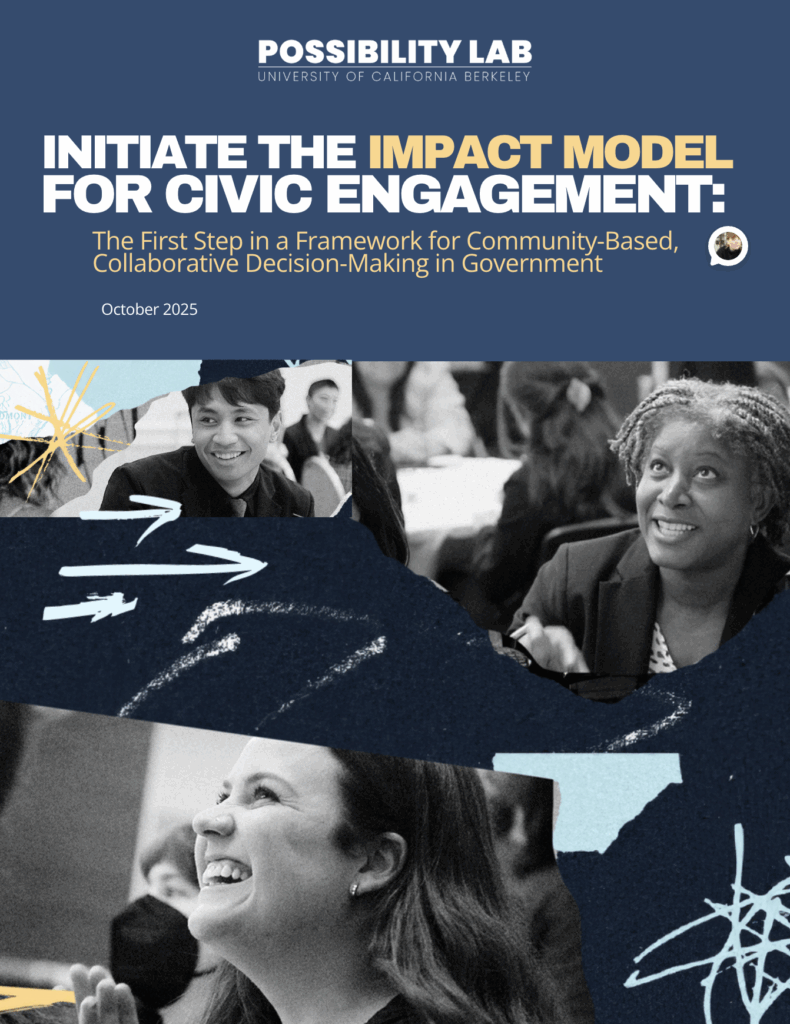 download the report
download the report
Using the IMPACT model, the planning team chose to design, implement, and evaluate nine deliberative democracy events. These day-long “Catalyst Convenings,” the first of which have already been hosted in the San Diego, Los Angeles, and Bay Area regions, aimed to achieve three key objectives: craft recommendations for the state, craft recommendations for the regions, and establish and strengthen working relationships. The remaining planned regional events will occur throughout 2025 and 2026.
Watch a short video on the Catalyst Convenings
The structure of each Catalyst Convening included the use of in-person deliberative methods (semi-structured group conversations), online polling (Mentimeter), and digital collective dialogue (Pol.is). Together, participants at each convening used these methods to craft and prioritize both regional and state recommendations.
See preliminary results from convenings in San Diego, Los Angeles, Bay Area
 download
download download
download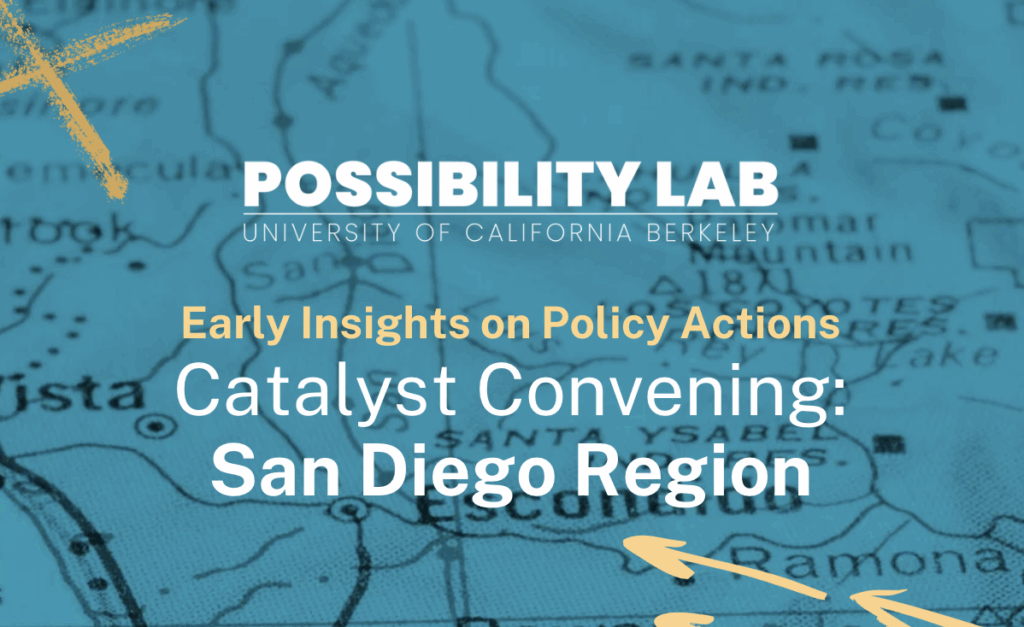 download
downloadDeliberative democracy was chosen as a structure for these events because it best aligned with both the anticipated challenges of engagement and the project goals surfaced during the Initiate phase.
Deliberative democracy is one of the core tools included in the IMPACT Model toolbox. Though it can take many forms, it is generally defined as a structured way people gather to learn about, thoughtfully consider, and debate critical issues, and then work together to recommend solutions. Research provides evidence that deliberative democracy processes can achieve consensus on difficult policy issues, encourage a greater willingness to listen to and engage with people holding opposing views, and increase positive feelings toward individuals from different political backgrounds.
Read about the Catalyst Convening and the LCI/SCG Partnership
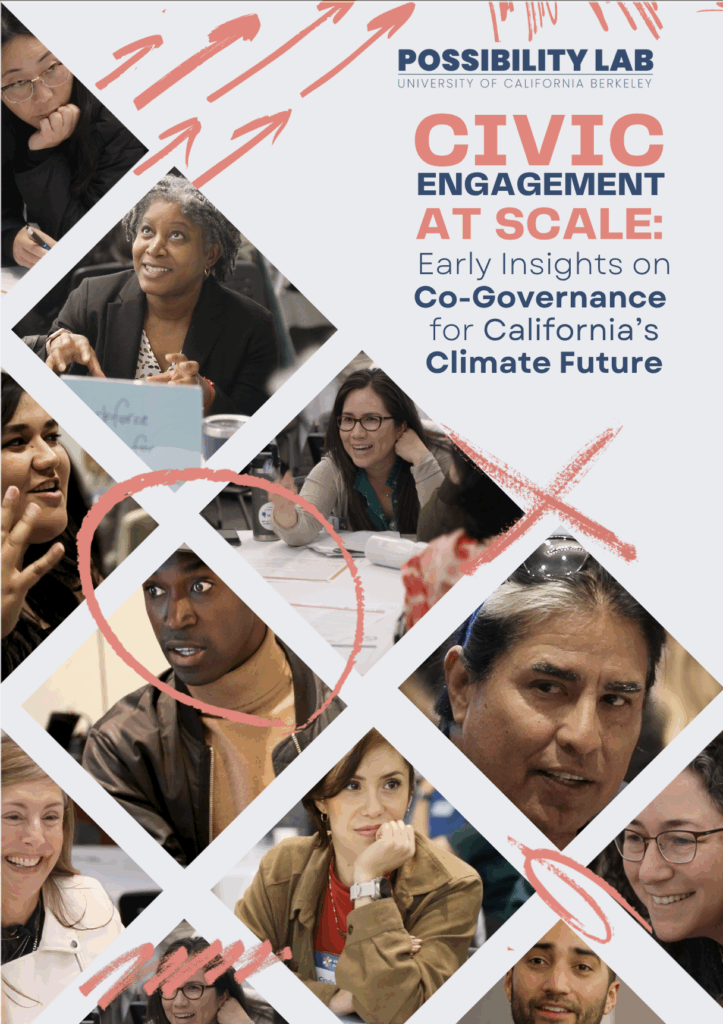 download
downloadOver the coming year, the Possibility Lab will continue working with LCI and SGC to refine and iterate on the structure of these convenings, analyze and communicate results with convening participants and early-stage planners, and develop implementation and evaluation plans to move from recommendations to reforms. Ultimately, priority recommendations will inform state policy actions on climate, land use, and energy.
This project is just one of a series of large-scale projects happening across California’s state government, which aim to advance collaborative civic engagement at scale. At the core of the IMPACT Model is finding new ways for state and local governments to carry out meaningful engagement with residents—understanding their needs, leveraging their expertise, and helping activate their participation to address our most pressing policy challenges.
 explore the entire series
explore the entire series
Improving local journalism through community engagement
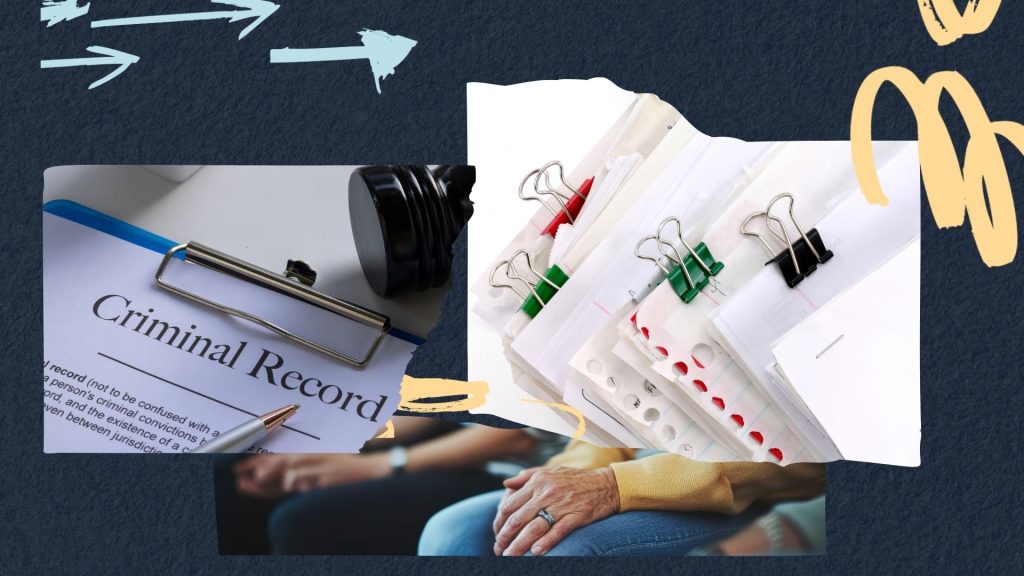
Understanding equity in criminal record clearance
